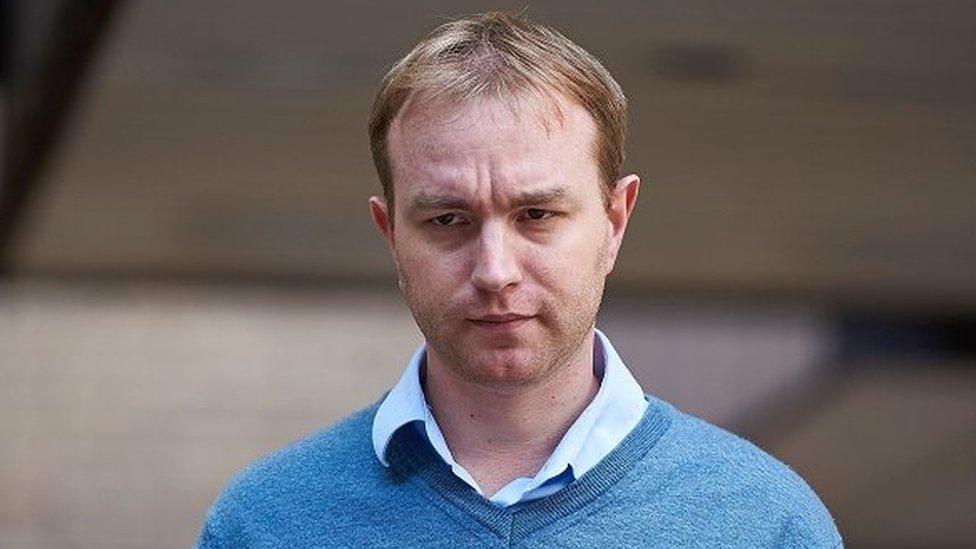Trader Tom Hayes has Libor rate-rigging sentence cut to 11 years
- Published

Former City trader Tom Hayes has had his jail sentence for rigging global Libor interest rates cut to 11 years.
The Court of Appeal in London considered mitigating factors including his diagnosis for Asperger's Syndrome, a condition on the autism spectrum.
He was previously sentenced in August to 14 years in prison for conspiracy to defraud.
Hayes was the first person to face a jury trial for manipulating the rate.
Libor is used as a benchmark for trillions of pounds of global borrowing and lending.
Many of the world's leading banks have paid heavy financial penalties for tampering with the benchmark.

Analysis: Kamal Ahmed, BBC business editor
The final sentence in the Appeal Court judgement on the Tom Hayes case is the one that carries significant weight.
It will serve as a wake-up call to any in the City that may still believe financial crime is somehow not as serious as other crimes.
Or, that because the rules were arguably unclear, the guilt of those involved is debatable.
"This court must make clear to all in the financial and other markets in the City that conduct of this type will result in severe sentences of considerable length," the three Appeal Court judges said.
Yes, Hayes had his sentence reduced slightly, but the court appears to want to make it clear that long sentences for manipulating markets - above the 11 years finally settled on here - could well be handed down in the future.

Lawyers failed to overturn the conviction of the former UBS and Citigroup trader.
Lord Thomas, sitting with Sir Brian Leveson and Lady Justice Gloster, said that none of the grounds of appeal on conviction had any merit.
"Those who act dishonestly in these markets must receive severe sentences to deter others from criminality that is often hard to detect and has such a damaging effect not only on the markets, but more broadly on the general prosperity of the state," he said.
Hayes said in a statement: "Today I lost a battle to have my conviction in relation to Libor overturned.
"Whilst I am immensely disappointed with this result, I am relieved and grateful that the extremely long sentence imposed on me has been reduced."
He added: "I continue to maintain my innocence."
The case was originally brought by the Serious Fraud Office, which said Hayes set up a network of traders over 10 financial institutions and persuaded them to help rig Libor rates for profit.